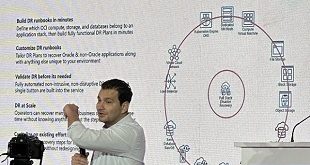
By Hashim Wasswa Mulangwa
Our leaders spend more time talking about why Africa has not developed than on creating capacity
A few weeks ago the Central bank held its 21st annual Joseph Mubiru memorial lecture, under the title “Unlocking Africa’s growth potential- aligning decision making to implementation and delivery”. One of the clear messages that seemed to have come out of that discussion, especially as communicated by guest speaker- Mr Trevor Manuel, was that Africa’s development hinges on (first and foremost), “Getting our politics right” – establishing functioning and transparent systems of democracy and accountability.
We then need to build Africa’s human resource through good education and health services, promote urbanisation, invest in the infrastructure needed for growth, and lastly- and most importantly, – “we must vigorously ensure that our broad analysis and commitments are backed by determined action”.
I thought this was very sound advice given the type of development debate we hear in this country. This is often a debate about what some see as the tremendous achievements in the past 25 years—and the prosperity that awaits us in the next decades.

While it is totally legitimate for the political establishment to take credit for Uganda’s economic progress in the past two decades, and speak about the vision of where they want to take this country—it’s all empty if we can’t address what we need to do to collectively achieve this vision.
Our leaders spend more time talking about why Africa has not developed; small markets, a failure to modernise agriculture, failure to industrialise, a weak state, inadequate infrastructure, under developed human resource, than on creating an environment and state capacity that would address these challenges.
Uganda or Africa has not failed to develop because it can’t industrialise. It has failed to industrialise because of our inability to create and cultivate a culture of innovation and scientific excellence. Small markets have not been the obstacle to Uganda’s growth prospects; the problem has been that we have not created an environment in which our economy produces sophisticated and high value products that can capture all kinds of markets. Poor human resources are a constraint to economic performance, but what type of education and healthcare system would ensure that our country has the skills and manpower to propel its growth?
After twenty years, we cannot continue to lament about the fact that infrastructure costs account nearly half of business costs in the region— well knowing that one intervention after the other has failed to fundamentally resolve this problem. So what’s the issue then? Is it that we don’t have the resources or the expertise to address these infrastructure needs? Of course not.
So the development challenge to address here is how we can get government planning systems to work to address the problem, leverage the expertise and financial instruments available to both the private sector and public sector to build highway systems, finance power plants, and finally build a railway system that connects local and regional markets.
It’s not what we want to do that matters, its understanding why and how we want to make an intervention that will change the spectrum of Uganda’s development.
Development is a complex process that involves a high degree of interaction by different agents and conditions. How we facilitate the interaction of these different agents determines how successful the development process is.
If we can create open, heterogeneous and more interactive systems then we will be able to come up with creative solutions to societal problems. Closing these channels of interaction- by stifling the performance of institutions through denying them the resources they need to function for example, provides fewer opportunities for different agents to engage and find solutions to our most pressing challenges.
It’s these underlying questions about the type of processes, systems, and political interactions that underpin any process of developmental change that should concern us if we are seriously determined to implement a transformative economic agenda in this country.
And this does not in any way mean that that Uganda hasn’t made a lot progress over the past 25 years. It just means we need to go deeper than the usual rhetoric for the next generation of reforms and decisions that would structurally change our economy.
Rather than talk about the construction boom and growth of our urban centres, we start talking about planned cities and make hard decisions and choices around what type of cities would spur business and make for a comfortable environment to live for their inhabitants.
Rather than boost about how Uganda’s tax revenue has grown from Shs27.2 billion in 1986 to Shs6 trillion in 2012 (a commendable achievement by any standard), we need to confront Public expenditure which is poorly targeted and service delivery that is weak. In fact, the more expansive our country’s fiscal position has gotten, the worse our public services have become. So we basically have a resilient growth environment, and weak social policy base.
What would make or break this trend? — Political institutions and leadership. We have got to think long and hard about state capability to deliver results that we constantly speak about, and how ordinary Ugandans can be inspired to be an active citizenry that is supportive of the leadership when they need to make difficult but transformative decisions.
Our failure to address these systematic issues of leadership and governance means that in another 25 years, our children (and grandchildren) will be listening to the same type development debate we are having today. And what a sad story that will be!
****
Hashim Wasswa Mulangwa is a development economist and practitioner
hmulangwa@gmail.com, Twitter @hashim11
 The Independent Uganda: You get the Truth we Pay the Price
The Independent Uganda: You get the Truth we Pay the Price



